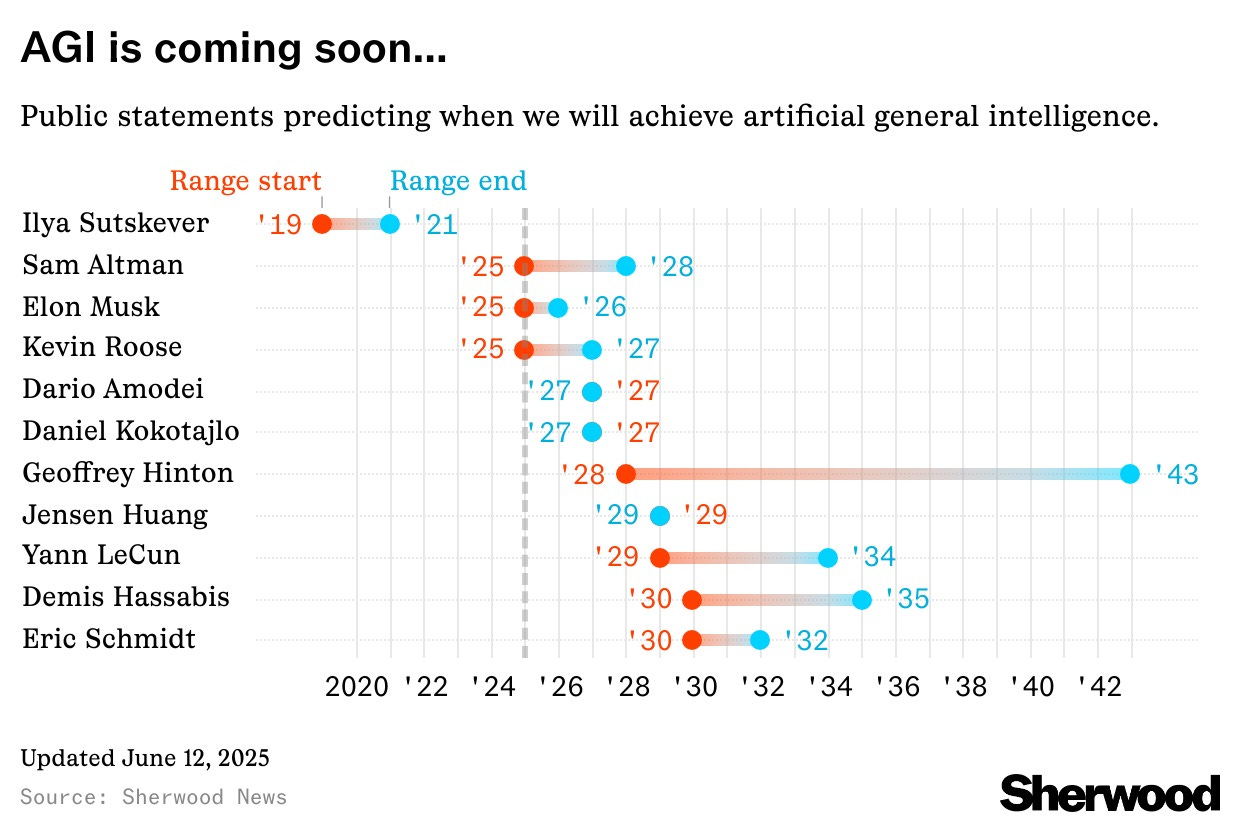I was staring at my to-do list the other night—emails, investor memos, a half-finished Peloton ride—when it hit me: if artificial general intelligence (AGI) really is right around the corner, my whole productivity stack (and yours, too) is about to feel as quaint as dial-up. The billion-dollar question isn’t whether super-smart machines will show up; it’s when they’ll decide our spreadsheets and Substack posts are child’s play…and do them for us in a blink.
So, what exactly counts as AGI?
Ask three AI luminaries, get three different answers:
-
OpenAI’s charter: systems that beat humans at “most economically valuable work.”
-
Elon Musk: an intellect “smarter than the smartest human.”
-
Dario Amodei (Anthropic): imagine “a country of geniuses in a data center.”
Pick your flavor, but the takeaway is the same: whoever nails this first unlocks a money-printing, economy-rewiring machine that can replace every knowledge worker from junior analysts to, well, newsletter writers.
The timeline tug-of-war
Here’s where things get spicy. We surveyed the latest public remarks and back-channel chatter (that’s right, I make my calls), and the consensus is…there isn’t one. Some insiders swear they can smell AGI from their server racks—think 24 to 36 months. Others shrug and say, “Wake me when my grandkids graduate.” Translation: it could be two years, or it could be never.
Median prediction: roughly 2027 is the line on the sand. But zoom out and you’ll see forecasts scattered from “next summer” to “stop asking, we’ll all be dust by then.”
If you’re the betting type, the smart money seems to cluster around a “holy-cow moment” before the end of this decade—helpfully vague enough for VCs to keep signing checks while researchers keep shipping incremental miracles.
Why the stakes feel existential
Think beyond sexy AI demos. AGI isn’t just better autocomplete; it’s an everything engine:
-
Wealth concentration on steroids – the first mover doesn’t just IPO; they Hoover up every economic rent in sight.
-
A labor market earthquake – goodbye knowledge-worker scarcity, hello reskilling scramble.
-
Regulatory twilight – governments will sprint to catch up, writing rules in pencil as the ink dries.
Sound dramatic? It is. That’s why the smartest people I know have one eye on revenue and the other on a red-flashing “AGI Approaching” sign none of us can quite locate.
Where do we go from here?
Keep your skepticism high and your curiosity higher. In the next issue, I’ll dig into the less talked-about side of AGI: the energy bill. (Spoiler: the smartest machine on Earth still needs a small city’s worth of power.) If you want front-row seats to the coming showdown between silicon brains and human ambition, make sure you’re subscribed—because the next 1,000 days might just be the most interesting ones in tech history.
See you on the other side of the singularity (or at least back here next week).
